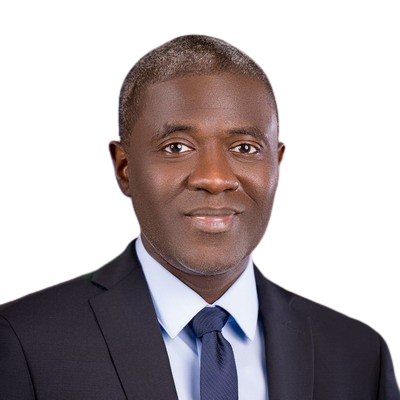NCC DECRIES TELECOM INFRASTRUCTURE DESTRUCTION VOWS TO DEAL WITH VANDALS THROUGH LEGAL MEANS

Abubakar Ahmed
@ Katsina times
The Nigerian Communications Commission (NCC) has attributed the disruption of telecommunications services in the country to the activities of unpatriotic individuals who destroy telecommunications infrastructure.
This was revealed in Abuja on Monday (4/11/2024) by the Executive Vice Chairman/CEO of the commission, Dr. Aminu Maida in his welcome address to the 2024 National Workshop for Justices and Judges on Legal Issues in Telecommunications, organized by the commission in collaboration with the National Judicial Institute, which held at the Sheraton Hotel, Ikeja, Lagos.
He said "telecommunication infrastructure has suffered from disruptions due extensive damage from vandalism and theft, fiber cuts by construction companies to mention a few, and even restricted access that prevents operators from servicing critical infrastructure.
"The industry has long called for special protections to be accorded to these assets to ensure continuous connectivity and reliable communication services."
Dr. Maida cautioned that the NCC would now be drawing from the powers granted it under the Cybercrimes Act of 2024 to designate what may be characterized as Critical National Information Infrastructure by President Bola Ahmed Tinubu, in July 2024, that designates all telecommunications infrastructure as Critical National Information Infrastructure.
This according to him, was achieved through the NCC’s proactive advocacy and strategic collaboration with key stakeholders, including the Office of the National Security Adviser (ONSA) and the Federal Ministry of Communications and Digital Economy.
He explained that under the act, Nigeria now has a comprehensive policy framework to protect vital telecommunication assets—from base stations and data centers to fiber optic cables enabling the NCC to decisively confront issues such as vandalism, illegal tampering, and preventing access to communications infrastructure, holding violators accountable to deter future offenses.
Similarly, individuals, organizations, or even government agencies are prohibited from sealing, removing, or damaging telecommunications infrastructure without a lawful court order.
He further said "we anticipate that the courts may occasionally receive requests for orders to grant exceptions to the protections afforded to these Critical National Information Infrastructures. During this workshop, we aim to provide insights that will support judicial discretion in evaluating such requests.
"The Office of the National Security Adviser, which plays a central role in coordinating the operationalization of the Presidential Order, has already begun stakeholder consultations and meetings to facilitate immediate implementation. It is likely that, in the near future, vandals, thieves, and others who breach this Order’s provisions will be brought before your courts.
"We trust that with a deeper understanding of the harm and disruption caused by such actions, the judiciary will impose appropriate sanctions to serve as strong deterrents against criminal activity."
He outlined the way forward to include the following, saying "As the digital age advances, judicial officers must constantly adapt to ensure that the rule of law is as effective and enforceable in the online realm as it is in the world of brick and mortar. One key challenge lies in adapting existing legal principles to the complexities of emerging and evolving technologies.
"Nigerians are eager to see a new chapter of digital justice, where the roles played by the judiciary are effectively translated and adapted into online contexts, as follows:
"Protecting fundamental rights: The responsibility of the judiciary to act as a guardian of individual rights in the digital sphere, safeguarding privacy, freedom of expression, and access to information, while also ensuring a balance between these rights and the need for security and order.
"Enforcing digital contracts and resolving disputes: The responsibility of the judiciary to provide a mechanism for enforcing online agreements and resolving disputes arising from e-commerce, intellectual property, and other digital transactions, fostering trust and predictability in the digital economy.
"Developing digital jurisprudence: The responsibility of the judiciary to continually interpret and apply existing laws to new digital contexts, creating a body of digital jurisprudence that provides clarity and guidance for individuals, businesses, and governments operating in the digital space.
"Promoting innovation: the responsibility of the judiciary to foster innovation by providing a stable legal framework that encourages investment and development in emerging technologies.
"On that note, let me express my strong optimism that this workshop will enrich the development of communications law in Nigeria, and produce outcomes that will be of immense benefit to all stakeholders."
Also in her speech to declare the event open, the Chief Justice of Nigeria, Justice Kudirat Kekere-Ekun urged participants that included justices drawn from the National Judicial Institute to come up with more strategies and innovations that will ensure consumer protection in the communications super highway.
She appreciated the "Moderators, Resource Persons and Discussants who have agreed to share their knowledge and experience with us at this Workshop. I have gone through the programme of events and I find the topics slated for discussions to be both topical and beneficial. I therefore urge you all to pay rapt attention, contribute meaningfully, and utilize this opportunity to update your knowledge in this unique area of the law," she said.

